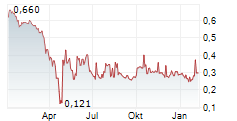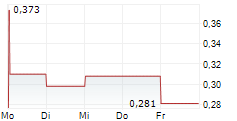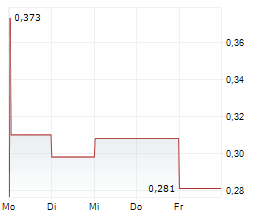
Regulatory News:
Sensorion (FR0012596468 ALSEN) a pioneering clinical-stage biotechnology company which specializes in the development of novel therapies to restore, treat and prevent within the field of hearing loss disorders, today announces the publication of new positive data from its SENS-401 Phase 2a clinical trial in the preservation of residual hearing in adult patients following cochlear implantation.
New medical data and analysis of results from the SENS-401 Phase 2a clinical trial after cochlear implantation were presented at the 17th International Conference on Cochlear Implants and Other Implantable Technologies (CI2024) on July 13, 2024, in Vancouver, Canada, by study investigator, Professor Stephen O'Leary, M.D., Ph.D.
The study design included a number of secondary endpoints, notably the change of hearing threshold from baseline to the end of the treatment period in the implanted ear at several frequencies. Study entry criteria required patients to have a pure tone audiometry (PTA) threshold of 80 dB or better (i.e., =80 dB) at 500 Hz, defined as indicating a minimal level of residual hearing. The results show that the administration of SENS-401 reduced hearing loss following cochlear implantation. Six weeks post cochlear implantation (corresponding to end of SENS-401 treatment), the data indicate that the mean hearing loss induced by the surgery at 500 Hz is 19 dB for patients treated with SENS-401 (N=16) compared to 32 dB for control group of SENS-401 untreated patients (N=8). Similar clinically meaningful difference is observed for the mean of the three following frequencies (250, 500 and 750 Hz) with 16 dB in the SENS-401 treated group compared to 31 dB in the control group. These good results remained clinically meaningful over time and up to the last study visit fourteen weeks after cochlear implantation and confirm the key role of SENS-401 in preserving residual hearing.
On March 11, 2024, Sensorion announced that it had successfully met the primary endpoint of the SENS-401 clinical trial for the preservation of residual hearing in adult patients following cochlear implantation. The presence of SENS-401 in the perilymph at a level compatible with potential therapeutic efficacy has been confirmed in 100% of the patients sampled, seven days after the start of the treatment, confirming that the primary endpoint was met. These results confirm that SENS-401 administered orally crosses the labyrinth barrier. The study is developed in collaboration with Cochlear Limited, the global leader in implantable hearing solutions.
Nawal Ouzren, Sensorion's Chief Executive Officer, said: "I am excited to share these new positive findings from our Phase 2a clinical trial on SENS-401, which demonstrate the clinically meaningful effect of our small molecule in preserving the residual hearing of patients undergoing cochlear implantation. Reaching this key secondary endpoint strongly supports SENS-401's ambition to potentially improve the quality of hearing of patients undergoing such surgery. We plan to communicate the full final data later in Q3 2024. We remain entirely focused on developing our hearing care franchise by developing our portfolio of very innovative therapies to address important hearing loss disorders, a significant global unmet need."
Géraldine Honnet, M.D., Sensorion's Chief Medical Officer, said: "The new results obtained for SENS-401 show the efficacy of the drug candidate in preserving residual hearing. I am delighted to report the difference in hearing loss between the treated group and the control group and the maintenance of this effect up to 14 weeks post implantation with 25 dB loss at 500 Hz in the treated group compared to 35 dB loss in the control group. I would like to extend my gratitude to every patient, partner and investigator who participated in this study."
The Company plans on communicating the full final data later in Q3 2024.
About SENS-401
SENS-401 (Arazasetron), Sensorion's clinical stage lead drug candidate, is an orally available small molecule that aims to protect and preserve inner ear tissue from damage responsible of progressive or sequelae hearing impairment. Sensorion currently develops SENS-401 in a Phase 2a for the prevention of residual hearing loss in patients scheduled for cochlear implantation and in a Phase 2 clinical trial for the prevention of Cisplatin-Induced Ototoxicity. SENS-401 has been granted Orphan Drug Designation by the EMA in Europe for the treatment of sudden sensorineural hearing loss, and by the FDA in the U.S. for the prevention of platinum-induced ototoxicity in pediatric population.
About Sensorion
Sensorion is a pioneering clinical-stage biotech company, which specializes in the development of novel therapies to restore, treat, and prevent hearing loss disorders, a significant global unmet medical need. Sensorion has built a unique R&D technology platform to expand its understanding of the pathophysiology and etiology of inner ear related diseases, enabling it to select the best targets and mechanisms of action for drug candidates.
It has two gene therapy programs aimed at correcting hereditary monogenic forms of deafness, developed in the framework of its broad strategic collaboration focused on the genetics of hearing with the Institut Pasteur. SENS-501 (OTOF-GT) currently being developed in a Phase 1/2 clinical trial, targets deafness caused by mutations of the gene encoding for otoferlin and GJB2-GT targets hearing loss related to mutations in GJB2 gene to potentially address important hearing loss segments in adults and children. The Company is also working on the identification of biomarkers to improve diagnosis of these underserved illnesses.
Sensorion's portfolio also comprises clinical-stage small molecule programs for the treatment and prevention of hearing loss disorders. Sensorion's clinical-stage portfolio includes one Phase 2 product: SENS-401 (Arazasetron) progressing in a planned Phase 2 proof of concept clinical study of SENS-401 in Cisplatin-Induced Ototoxicity (CIO) and, with partner Cochlear Limited, in a study of SENS-401 in patients scheduled for cochlear implantation. A Phase 2 study of SENS-401 was also completed in Sudden Sensorineural Hearing Loss (SSNHL) in January 2022.
www.sensorion.com
Label: SENSORION
ISIN: FR0012596468
Mnemonic: ALSEN
Disclaimer
This press release contains certain forward-looking statements concerning Sensorion and its business. Such forward looking statements are based on assumptions that Sensorion considers to be reasonable. However, there can be no assurance that such forward-looking statements will be verified, which statements are subject to numerous risks, including the risks set forth in the 2023 full year report published on March 14, 2024, and available on our website and to the development of economic conditions, financial markets and the markets in which Sensorion operates. The forward-looking statements contained in this press release are also subject to risks not yet known to Sensorion or not currently considered material by Sensorion. The occurrence of all or part of such risks could cause actual results, financial conditions, performance or achievements of Sensorion to be materially different from such forward-looking statements. This press release and the information that it contains do not constitute an offer to sell or subscribe for, or a solicitation of an offer to purchase or subscribe for, Sensorion shares in any country. The communication of this press release in certain countries may constitute a violation of local laws and regulations. Any recipient of this press release must inform oneself of any such local restrictions and comply therewith.
View source version on businesswire.com: https://www.businesswire.com/news/home/20240714546347/en/
Contacts:
Investor Relations
Noémie Djokovic, Investor Relations and Communication Associate
ir.contact@sensorion-pharma.com
Press Relations
Ulysse Communication
Bruno Arabian 00 33(0)6 87 88 47 26
barabian@ulysse-communication.com
Nicolas Entz 00 33 (0)6 33 67 31 54
nentz@ulysse-communication.com




